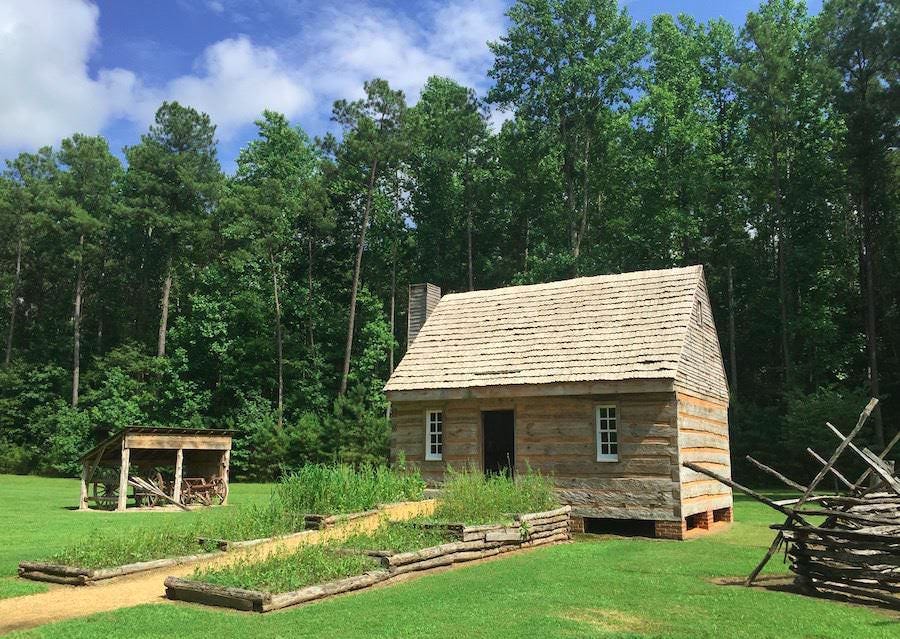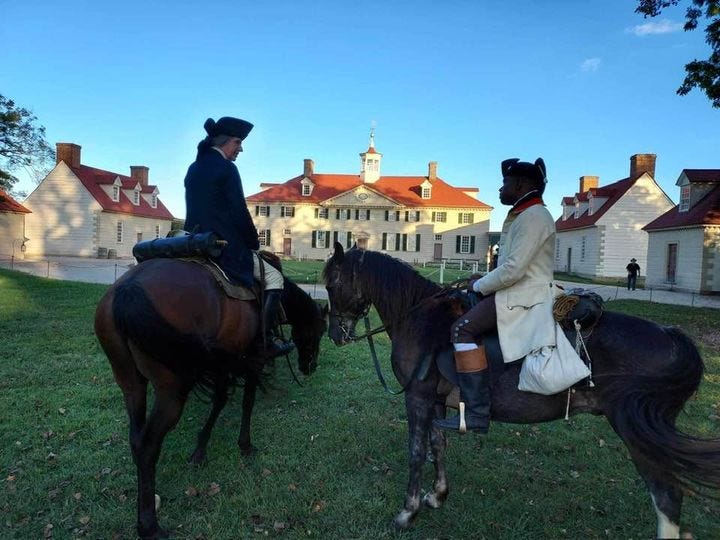I suppose anyone who writes about history should have something to say on the Fourth of July. Given the state of politics and political discourse in the USA after 249 years, perhaps this is the most important thing to highlight:
On 4 July 1776, slavery became politically and legally controversial for the first time in human history.
Until then, property title to human beings had simply been one of many commodities in ordinary commerce all over the world. Sure, a Quaker congregation in London might pass a resolution condemning the crime of man-stealing, but, many Quakers in America owned slaves. Paul Robeson's mother was descended from one of them. (Yes, even Quakers had babies by women they held title to as slaves. Cyrus Bustill, the enslaved woman's son, refused to marry until he was free, then, raised his children in the Quaker faith.)
The very existence of slavery as a legal and economic practice was not a significant point of controversy. It was endemic to human history. Ironically, slavery had died out in Europe during the early middle ages. But it remained common in parts of the Mediterranean, around the Indian Ocean, among many nations in the Americas (as-yet unknown to Europeans), and all over Africa. When sugar cane cultivation expanded into and across the Atlantic, a massive commerce in slaves naturally followed it.
I say naturally, because sugar cane had always been worked by slaves. The plant originated in New Guinea, just as bananas originated in southeast Asia, and apples in central Asia. Sugar cane has tough, sharp-edged leaves that cut anyone working with it. To obtain sugar requires a hot, dangerous, messy refining process. Naturally, this was work for slaves, who had no choice. It was true all around the Indian Ocean, as commerce gradually spread the cultivation of the plant, then in northeastern Africa, Arabia, the Mediterranean.
It was not legal to hold anyone, of any complexion, in slavery in England. But England grew rich from the legality of working slaves to death in Jamaica and other Caribbean islands. The thirteen North American colonies were not suitable for growing sugar cane, and acquired the habits of slavery rather late. The overwhelming majority of Africans transported to North America arrived 1720-1780. When thirteen colonies declared themselves absolved of all allegiance to the British Crown, they decided not to participate any more in the slave trade.
That did not mean freeing slaves — it meant purchasing no more from trans-Atlantic commerce. It was not a humanitarian gesture. It was one component of the Non-Importation agreements — a way to hit the British economy in the pocket book.
But when the Declaration of Independence boldly asserted "All men are created equal, that they are endowed by their Creator with certain inalienable rights," holding people presumably created equal as property, became an unavoidable question.
One result was thousands of slaves being freed by owners-of-record. Phillip Graham of Maryland said that holding his "fellow men in slavery is repugnant to the golden law of God and the unalienable right of mankind as well as to every principle of the late glorious revolution which has taken place in America." Of course that was a minority point of view. At one of the great crisis points of the Revolutionary War, when John Laurens, George Washington, and the Continental Congress, sought to enlist 3000 enslaved men from South Carolina to repel a British invasion, the masters of South Carolina said they would rather seek a separate peace with the British Crown if that subject were mentioned again.
But thousands of slaves were freed — out of 600,000 or so. Over the next few decades, seven states either abolished slavery or began a process of gradual emancipation. Laws for the new Northwest Territories prohibited slavery in the lands that would become Ohio, Indiana, Michigan, Illinois and Wisconsin. There were many attempts to circumvent that prohibition, but, in the end, it held. Instead of a nation that was fully committed to slavery, there was a nation that was half free and half slave.
George Washington, Thomas Jefferson
and the next generation
I've recently been reading Nathaniel Philbrick's book In The ?Hurrican's Eye: The Genius of George Washington and the Victory of Yorktown. Mostly its about the near-collapse of the American war of independence in 1781. The state's weren't willing to fund the army, soldiers were deserting, new recruits were lacking. French and Spanish money, a French fleet, and French soldiers made the victory at Yorktown possible. But at the end, he summarized George Washington's life after independence had been won. Its an equivocal tale:
By the end of his life he'd realized that the greatest threat to the country's future came from slavery. During the Revolutionary War he had paid lip service to efforts to eradicate the institution and had even flirted with the idea of ridding himself of his own slaves in 1779. In each instance, however, he had continued to behave like a Virginia slave owner, insisting on the retrieval of escaped slaves at Yorktown in 1781 and at New York in 1783, and taking extraordinary (though unsuccessful) measures to retrieve the enslaved man and woman who had fled from his household in Philadelphia. This did not prevent him from recognizing slavery's pernicious effects. "I can clearly foresee," Jefferson overheard him say, "that nothing but the rooting out of slavery can perpetuate the existence of our union." If slavery should ever come to divide the United States, he insisted, in an eerily clairvoyant anticipation of the Civil War, "he had made up his mind to remove and be of the Northern [portion]." Washington, it is clear, would never have gone the way of Robert E. Lee. But what could he do at this late stage of his life to make his position known? He could change his will. In July 1799, he retired to his study and set to work. Of the 317 slaves at Mount Vernon, he owned only 124 outright. Forty were rented from a neighbor, and the rest, 153, were the property of the Custis estate and were to be inherited by Martha's grandson on her death. At the very least, Washington could free his own slaves, thus becoming the only slaveholding Founding Father to do so.
On the other hand, the very controversy generated by the Declaration of Independence generated more virulent forms of racism than had previously been common.
IF "all men are created equal," but, a man who owned slaves was not willing to emancipate them, therefore, such a man had to rationalize why it was all right to keep slaves in a nation dedicated to universal liberty. The obvious answer was, these people aren't endowed by their Creator with inalienable rights, they are an inferior sub-species who are not created equal at all. Such speculation had not been entirely unknown in the 18th century, but it hardened into passionate advocacy in the 19th century.
Thomas Jefferson hoped that a post-revolutionary generation, raised in an atmosphere of liberty, would find the will to abolish slavery entirely. Instead, a post-revolutionary generation finding lucrative profits in the rapid spread of cotton cultivation, doubled down on promoting slavery as a positive good.
The hypocrisy of the British Empire
Great Britain gets a lot of undeserved credit for being anti-slavery. The British ministry has an amazing capacity to sanctimoniously turn on a dime and signal their newly acquired virtue with exquisite hypocrisy. The North American colonies acquired slavery from the commercial placenta of Mama England as a baby acquires addiction to cocaine or infection with syphilis from its mother. During the revolution, England offered sanctuary to those slaves belonging to men active in promoting independence, while protecting the property rights in human chattels of loyalists. Slave-owning loyalists who moved to Canada took their slaves with them.
When William Wilberforce introduced his bill to end British participation in the slave trade, it got all of 16 votes. Britain and the US abolished the trade the same year: 1808. Britain abolished slavery in its Caribbean colonies in 1833, but put most former slaves into apprenticeships that were not much better, while importing east Indian bonded laborers.
Then, when the British Empire began taking administrative control of African territory and establishing colonies, one of their rationales was "the Africans keep slaves, we can't allow that." The Brits oughtta know — in the 18th century British merchants were begging on their knees from those same African kings for royal permission to purchase slaves and offering commissions, while British diplomats brought gifts to insure protection for their nationals.







